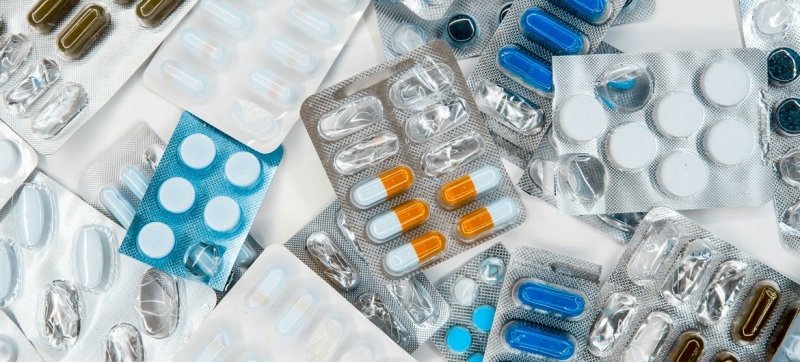
Antimicrobial resistance occurs when bacteria, viruses, fungi and parasites mutate and can no longer be treated with existing drugs. WHO releases first guidelines on antibiotic waste management Health
The World Health Organization (WHO) on Tuesday published its first guidelines on the management of pharmaceutical waste from antibiotic production, which will reduce environmental contamination by these drugs and help prevent the development of antimicrobial resistance.
Antimicrobial resistance
WHO stresses that when released into the environment, such waste can contribute to the emergence of new drug-resistant bacteria, which can pose a serious threat to human health.
“Pharmaceutical waste from antibiotic production can contribute to the emergence of new drug-resistant bacteria that can spread around the world and threaten our health,” said Dr Yukiko Nakatani, WHO Assistant Director-General a.i. for Antimicrobial Resistance (AMR).
“Controlling pollution from antibiotic production helps maintain the effectiveness of these life-saving medicines for everyone,” she added.
High levels of environmental contamination with antibiotics have been documented in many places, but the problem is currently largely unregulated, and pharmaceutical quality assurance requirements generally do not take into account criteria such as waste management.
The WHO guidance was published ahead of a high-level meeting on AMR to be held as part of the UN General Assembly’s week of general debate later this month in New York.
AMR occurs when bacteria, viruses, fungi and parasites mutate and are no longer treatable with existing drugs. AMR is largely caused by the inappropriate and excessive use of antimicrobial drugs. There is also growing evidence that environmental pollution from antibiotics and waste from their production plays a role in the development of antimicrobial resistance.
Lack of information
WHO notes that not only manufacturers but also consumers can help change the situation if they are provided with accurate information on how to dispose of unused antibiotics, for example, when a medicine has expired or when a course of antibiotics has finished but there are still tablets left.
There is a global lack of accessible information on the environmental damage caused by drug production, the WHO says. Health ministers from the world’s leading economies, as well as representatives of the United Nations Environment Programme (UNEP), have called for guidelines to be developed on this issue.
“The role of the environment in the development, transmission and spread of antimicrobial resistance requires careful consideration as evidence mounts,” said Jacqueline Alvarez, head of UNEP’s Industry and Economics Division.
“There is widespread agreement that environmental action should be given greater attention as a solution to the problem. This includes preventing and controlling contamination from municipal systems, manufacturing sites, health care facilities and agri-food systems,” she added.
About the guideline
The new WHO guideline was developed in close consultation with a group of international experts, including representatives from academia and regulatory agencies.
It outlines solutions to the problem of environmental contamination from antibiotic production waste that will reduce the risk of the emergence and spread of AMR.
“The guideline provides an independent and impartial scientific basis – for regulators, purchasers, inspectors and the industry itself – to put in place robust controls on antibiotic contamination,” said Dr Maria Neira, director of the WHO Department of Environment, Climate Change and Health.
“A focus on transparency will enable buyers, investors and the general public to make decisions that take into account producers’ efforts to control antibiotic contamination,” she added.
